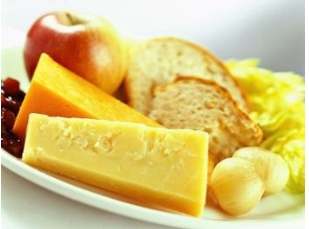 The 11th China Food Safety Annual Conference Forum kicked off on September 15. The revision of the "Food Safety Law" was an important part of the seminar that afternoon, which caused heated discussions among domestic legal experts and food industry professionals. Professor Hu Jinguang, Deputy Dean of the School of Law of Renmin University of China, Professor Liu Junhai, Deputy Director of the Institute of Food Safety Law, Renmin University of China, Zhang Shouwen, Deputy Secretary of the Heilongjiang Province Food and Drug Administration, Professor of the Law School of Tsinghua University, Research Center for Health Law Director Wang Chenguang and other experts have expressed their opinions.
The 11th China Food Safety Annual Conference Forum kicked off on September 15. The revision of the "Food Safety Law" was an important part of the seminar that afternoon, which caused heated discussions among domestic legal experts and food industry professionals. Professor Hu Jinguang, Deputy Dean of the School of Law of Renmin University of China, Professor Liu Junhai, Deputy Director of the Institute of Food Safety Law, Renmin University of China, Zhang Shouwen, Deputy Secretary of the Heilongjiang Province Food and Drug Administration, Professor of the Law School of Tsinghua University, Research Center for Health Law Director Wang Chenguang and other experts have expressed their opinions. In the speeches of the participating experts, almost everyone mentioned Prime Minister Li Keqiang's "ruling the code to punish chaos." "This is the basic consensus we reached," Liu Junhai said in his speech, but tyrannical remedy does not imply that Only when the law is pursued afterwards is it strict with the legal system, and a strict legal system should be established in the governance of the source.
"Intensify penalties and solve the problem of excessively low costs of intentional violations of the law." Zhang Shouwen proposed in the discussion that he should increase penalties for some subjective and intentional crimes, especially the existing laws, including the revised "Food Safety Law." The lower limit of punishment in the article, the lower limit after Article 110 was revised was a thousand or two thousand dollars, and the illegal enterprises had already earned 200 million, and the two thousand dollars had no use at all.
Zhang Shouwen immediately followed a strict case of strict punishment in Guangzhou in 2011. At that time, a Guangzhou food company used recycled bread to reprocess the bread. The value involved was 115,000 yuan. At that time, according to the most severe administrative penalty, the fine was not fined. A total of 1.16 million yuan. The manager of the company involved himself said that this lesson is very painful. Such heavy penalties make him really feel that the red line of the law cannot be explored.
In addition to the supervision and investigation of food safety issues by the regulatory authorities, the issue of consumer rights protection has also attracted the attention of experts.
"I personally think that a system of double-ups and double-drops should be achieved," said Liu Junhai. Now that some businesses have implemented some dishonesty, I personally think that it is because the cost of losing faith is far lower than that of untrustworthy ones. The cost of consumer rights protection is very high. Higher than the benefits of rights protection.
High costs and difficulty in certification are important factors. In addition, information asymmetry and financial incompatibility, merchants have a unique cost transfer ability, unbalanced market system, many consumers have the idea of ​​free riders when they are defendants, these causes have caused consumers to maintain their rights. In Liu Junhai's view, "In this case, our Food Safety Law should do double-dumping and double-dropping, raise the cost of dishonesty for businesses, reduce the income of unscrupulous businesses, return the value to zero or even become negative, and at the same time greatly increase Consumers' rights to protect their rights and reduce the cost of consumer rights protection."
In addition, the connection between the "Food Safety Law" and relevant laws is also one of the focuses of the seminar. In fact, there are many other laws related to food safety other than the Food Safety Law.
"We need to consider supporting or related laws when we revise the "Food Safety Law,"" Hu Jinguang introduced to everyone, such as the Consumer Protection Law, the Administrative Punishment Law, the Administrative Licensing Law, and the Administrative Mandatory Law. Our criminal law, the government information disclosure regulations, the civil service laws, etc., have a lot to do with these laws and guarantee food safety.
"The "Food Safety Law" is simply an inter-departmental law. It involves the market, involves administrative management, and involves law enforcement." Wang Chenguang explained that, in terms of its content, it does not only involve the government. The supervisory act, which also involves the issue of criminal law, that is, the issue of crime, it also involves some civil relations in the production and circulation of the civil aspects of food, so from this perspective, it can not simply be stated as an administrative law. Therefore, the amendments to the "Food Safety Law" should be followed up by the corresponding amendments to the criminal law. Therefore, it is necessary to link with many departmental laws and become a comprehensive cross-sector law.
"Daily Economic News" reporter learned from the seminar that many of the questions mentioned by the experts at the meeting have already formed initial amendment opinions and they are prepared to submit proposals on the entire "Food Safety Law" on this basis. The amendments were submitted to the National People's Congress Law Commission, the National People's Congress Committee, and the State Council Legislative Affairs Office.
Integrated Disposable Blade For Video Laryngoscope
Laryngoscope Set,Laryngoscope Blade Sizes,Disposable Laryngoscope,Disposable Laryngoscope Blades
Jiangsu Yongle Medical Technology Co., Ltd. , https://www.jsylmedical.com